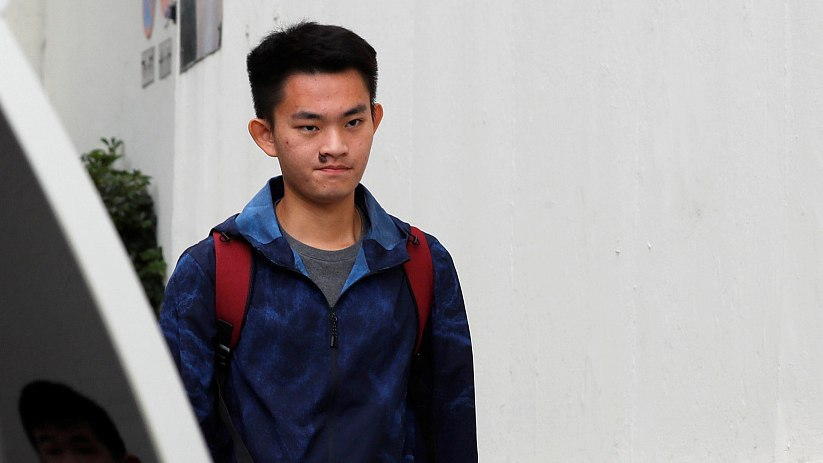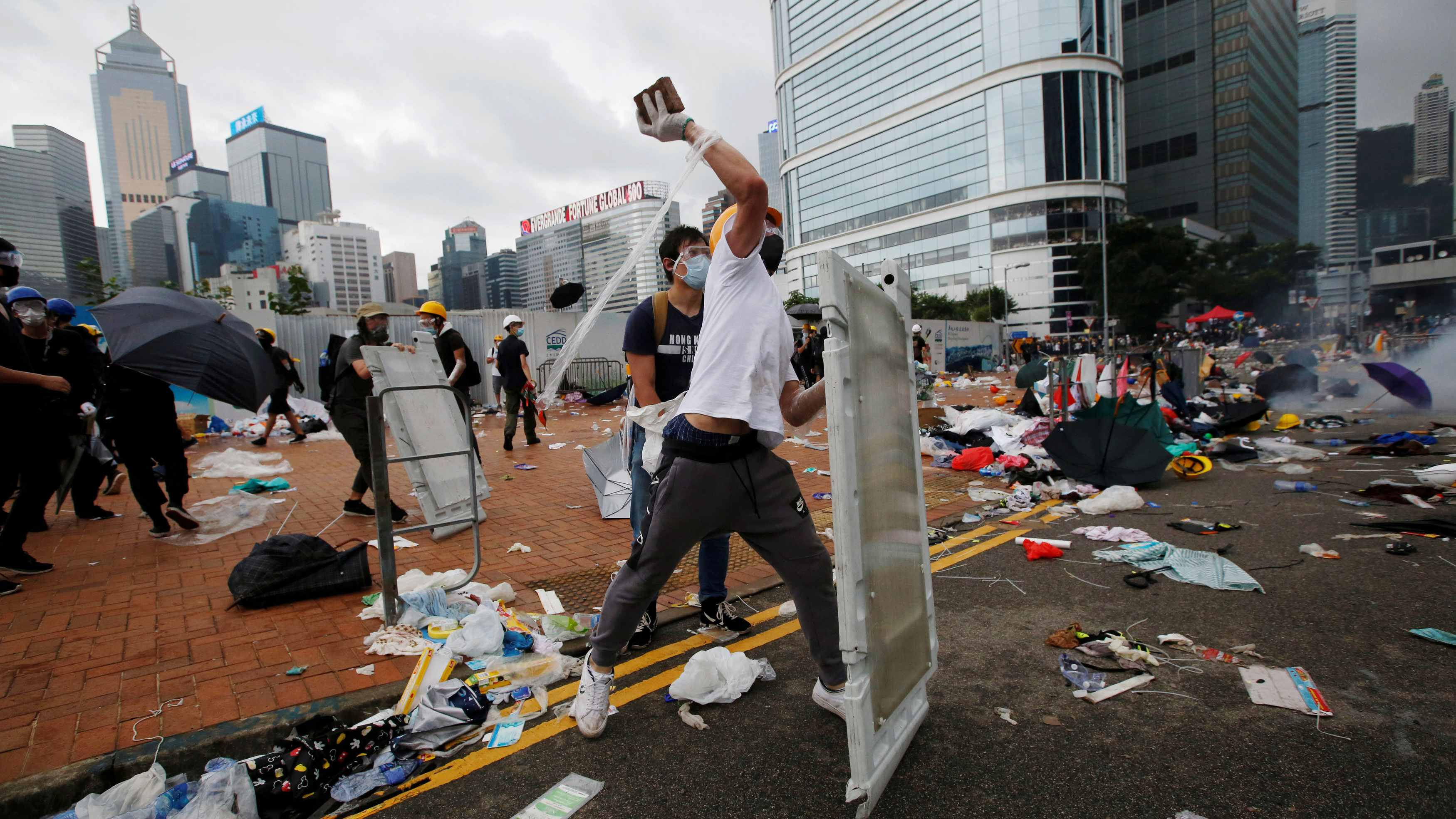02:32

The Hong Kong Special Administrative Region (HKSAR) on Wednesday morning released the homicide suspect that triggered the city's mass protests.
Chan Tong-kai, a Hong Kong native, killed his pregnant girlfriend during their trip to Taiwan in February 2018 and fled back to Hong Kong the next day. The 20-year-old was arrested by the Hong Kong police in March 2018.
The Department of Justice of Hong Kong, however, found that there was no other evidence to charge him but money laundering, as there is no extradition agreement signed between the jurisdictions of Hong Kong (where Chan is now) and Taiwan (where Chan committed the crime). That's why Chief Executive Carrie Lam had proposed the now-defunct fugitive bill, which provoked the mass protest crisis in the city that is seen as becoming increasingly violent.
Hong Kong SAR announces suspension of amendments to fugitive bill
Chan told the media outside the prison that he has done wrong and irreparable things, and has thus all along been in self-blame and self-condemnation.
"I am willing, for my impulsive act and things I did wrong, to surrender myself to Taiwan to face sentencing."
HK: We hope Taiwan can prosecute him
Hong Kong vows to offer all necessary assistance within legal limits to the case, hoping Taiwan can receive the surrendered suspect of the homicide case, yet Taiwan rejected the offer.
Chan could only be allowed in if his entry complied with legal procedures, said Taiwan authorities on Monday, adding that they would not take Chan back unless a mutual legal assistance framework with Hong Kong was established.

A protester throws a brick during a demonstration against the now-defunct fugitive bill, in Hong Kong, China, June 12, 2019. /Reuters Photo
A protester throws a brick during a demonstration against the now-defunct fugitive bill, in Hong Kong, China, June 12, 2019. /Reuters Photo
The Department of Justice of the HKSAR reiterated on Tuesday that Hong Kong has no jurisdiction over the homicide case that happened in Taiwan involving two Hong Kong residents, and there is not enough evidence here to prosecute the suspect except for money laundering offenses.
Hong Kong adopts the territoriality principle with respect to criminal jurisdiction, and such jurisdiction applies only when the whole or part of the criminal act takes place within Hong Kong's boundary, the department said, adding that there is no legal basis for the HKSAR government to detain any discharged prisoner arbitrarily.
"Refusing to let the suspect surrender is not only in defiance of justice but also an irresponsible act contrary to the rule of law," it said.
Timeline of Chan's murder case:
- February 8, 2018: Chan and his girlfriend Poon Hiu-wing traveled to Taiwan.
- February 17, 2018: Chan strangled Poon to death, and fled back to Hong Kong the next day.
- March 13, 2018: Chan was arrested in Hong Kong, confessing to police that he had killed Poon.
- December 31, 2018: Chan pleaded guilty to charges of money laundering in relation to cash stolen from Poon.
- February 2019: HKSAR government proposed the controversial fugitive bill, hoping to establish a mechanism for transfers of fugitives for regions that are excluded in the existing laws.
- April 29, 2019: Chan was sentenced to 29 months in prison on charges of money laundering.
- September 4, 2019: HKSAR Chief Executive Carrie Lam announced the formal withdrawal of the fugitive bill.
- October 4, 2019: Lam introduced "anti-mask law," a move to "create a deterrent effect against masked, violent protesters and rioters."
- October 23, 2019: Chan was released from prison.